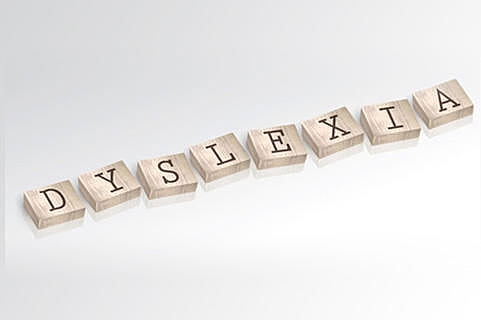
Discovery of origin of dyslexia in the eye could lead to potential new cure
Thursday 02 November 2017French scientists have discovered a physiological commonality in the eyes of dyslexia sufferers which could potentially lead to a new cure for the condition.
While studying the eyes of people with the condition, researchers at the University of Rennes realised that their eye cells were arranged in matching patterns in both eyes, whereas the cells in non-dyslexic people are arranged asymmetrically.
The result in those with dyslexia is a kind of battle in the brain between the two identical received images. In non-dyslexic people, the different cell arrangement allows the brain to prioritise one image over another and select a single “true” image.
Further study revealed a delay of a millisecond between the primary image and the mirror image in the opposing hemispheres of the brain – and this is where the research entered a truly exciting dimension. The boffins set about building an LED lamp which flashed at exactly the right speed to erase the second confusing image before it reached the brain. It was so successful that the dyslexia sufferers who initially trialled it called it the “magic lamp”.
If the research findings are correct, it would also mean that the diagnosis of dyslexia could be made simply by looking into a subject’s eyes.
Sources:
IFL Science:
Scientists May Have Found Out What Causes Dyslexia.The Guardian:
Dyslexia: scientists claim cause of condition may lie in the eyes.
Comments
Post a comment…
A Serious Blog
News and views from around the world on lighting, eyecare and eye conditions.
Twitter: @seriousreaders
Facebook:facebook.com/seriousreaders
Recent posts
- Parkinson's Light Therapy: Exploring Hope on World Parkinson's Day
- From gas lamps to LEDs: Understanding vehicle headlights and the glare debate
- Cracking the code: Genetic research reveals key answers for childhood glaucoma
- A clearer look at eye health and healthy habits to help protect your vision
- Will the clocks stop changing? The future of daylight saving time in the UK

Share your email address and we will keep you up to date as we learn more about light and offer you the best deals.